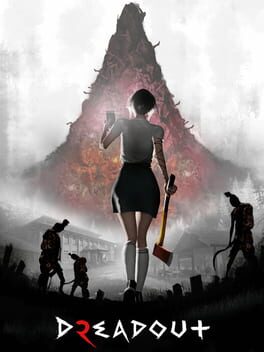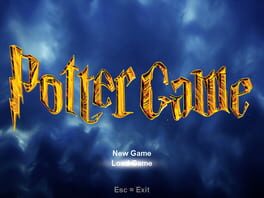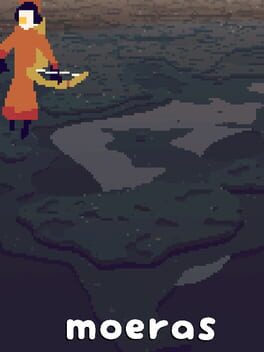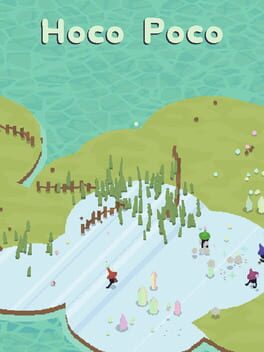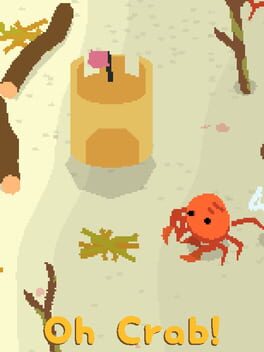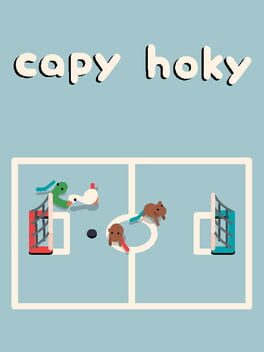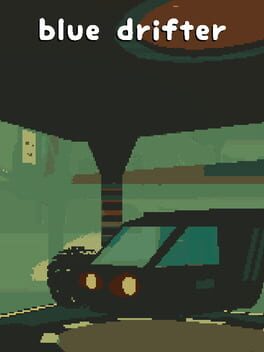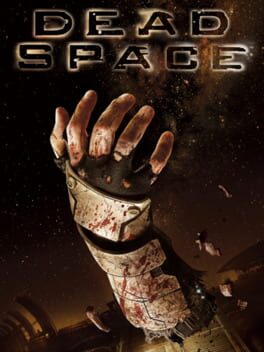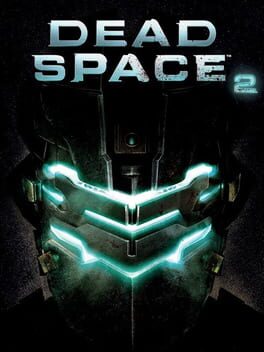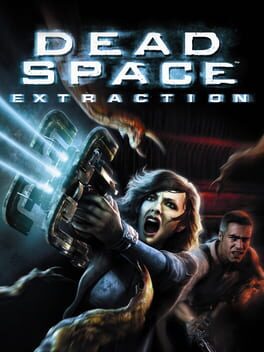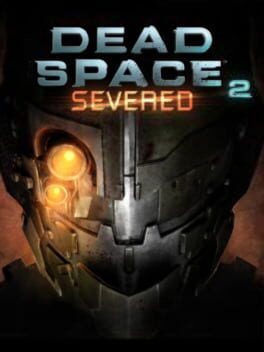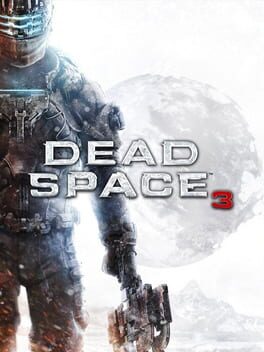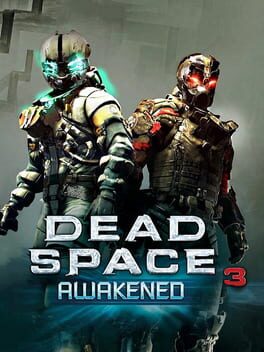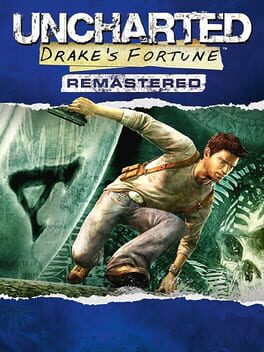2020
Dreadout 2 es una culminación de ideas que Digita Happiness venía trabajando desde el principio. Por una parte, el equipo se afanó en construir una Indonesia en la que criaturas paranormales, mitológicas y apocalípticas fueran capaces de cruzar con la vida cotidiana de sus habitantes. Para ello, se basan en el socorrido escenario del instituto y lo expanden hasta donde pueden, permitiéndote explorar una suerte "mundo abierto" que funciona más (como dije en mi crítica original) como una simulación de turismo. A lo largo de sus mapas, nos vamos dando cuenta de hasta qué punto el esfuerzo de integrar lo mundano con lo sobrenatural alcanza todos los niveles y consigue crear un mundo propio en el que se vuelven inseparables. Imágenes cursis como el espíritu de la residencia femenina, el fantasma del niño terminal, el protector animal del mercado local o el muerto viviente embaucador de ludópatas nos dan un mensaje muy obvio y contundente: estos son algo más que monstruos que abatir, son parte de un mundo y tú eres un mero invitado.
Habiendo dicho eso, se agradece que el juego se ha vuelto muchísimo más agradable de manejar y entender, aunque una parte mía se lamenta que hayamos perdido algo de aquella naturaleza obtusa que me animaba a buscar por todas las esquinas y prestar atención a todos los sonidos raros. El factor coleccionable se siente obligatorio antes que artístico a este punto, y el combate contra el jefe final, pese a las esperanzas que suscita, no consigue cumplir mis expectaciones. Pese a todo, me encantaría pasear por el barrio de Linda Melinda una vez más.
---------------
Dreadout 2 is a culmination of ideas that Digita Happiness had been working on since the beginning of the trilogy. On the one hand, the team strived to build an Indonesia in which paranormal, mythological and apocalyptic creatures were able to intersect with the everyday life of its inhabitants. To do this, they relied on a worn-out high school setting and expanded it as far as they could, allowing you to explore a sort of "open world" that works more (as I said in my original review) as tourist attraction. Throughout its maps, we realize to what extent the effort to integrate the mundane with the supernatural reaches all levels and manages to create a texture of its own. Cheesy images like the spirit of the female residence, the ghost of the terminal child, the animal protector of the local market or the undead trickster give us a very obvious and clear message: these are more than just monsters to be defeated, they are part of a living world, and you're just a guest in it.
That being said, it's nice that the game is now much, much easier to play and understand, though a part of me laments that we've lost some of that obtuse nature that encouraged me to look around every corner and pay attention to every weird sounds. The collectible factor feels obligatory rather than artistic, and the final boss fight, despite all hope, fails to live up to my expectations. Still, I'd love to wander through Linda Melinda's neighborhood one more time.
Habiendo dicho eso, se agradece que el juego se ha vuelto muchísimo más agradable de manejar y entender, aunque una parte mía se lamenta que hayamos perdido algo de aquella naturaleza obtusa que me animaba a buscar por todas las esquinas y prestar atención a todos los sonidos raros. El factor coleccionable se siente obligatorio antes que artístico a este punto, y el combate contra el jefe final, pese a las esperanzas que suscita, no consigue cumplir mis expectaciones. Pese a todo, me encantaría pasear por el barrio de Linda Melinda una vez más.
---------------
Dreadout 2 is a culmination of ideas that Digita Happiness had been working on since the beginning of the trilogy. On the one hand, the team strived to build an Indonesia in which paranormal, mythological and apocalyptic creatures were able to intersect with the everyday life of its inhabitants. To do this, they relied on a worn-out high school setting and expanded it as far as they could, allowing you to explore a sort of "open world" that works more (as I said in my original review) as tourist attraction. Throughout its maps, we realize to what extent the effort to integrate the mundane with the supernatural reaches all levels and manages to create a texture of its own. Cheesy images like the spirit of the female residence, the ghost of the terminal child, the animal protector of the local market or the undead trickster give us a very obvious and clear message: these are more than just monsters to be defeated, they are part of a living world, and you're just a guest in it.
That being said, it's nice that the game is now much, much easier to play and understand, though a part of me laments that we've lost some of that obtuse nature that encouraged me to look around every corner and pay attention to every weird sounds. The collectible factor feels obligatory rather than artistic, and the final boss fight, despite all hope, fails to live up to my expectations. Still, I'd love to wander through Linda Melinda's neighborhood one more time.
2020
2018
Comparando los juegos antiguos de Sokpop con los más recientes, siento que están pasando por una especie de normativización de sus obras. Recuerdo claramente jugar a Moeras hace años, sabiendo de los juegos Souls poco más que lo que había visto de Demon's, y me sentí muy cautivado no porque esto fuera una experiencia fiel a su estética, sino porque conseguía evocar un mundo entero con muy poco. Cierto es que, en aquél entonces, apenas podías hacer nada con ese mundo. Pero luego juegas a Brume, y sientes que ese más hacer no se traduce necesariamente en conocer mejor ese mundo.
---------------------------
Comparing Sokpop's older games to their more recent ones, I feel like they're going through a sort of normativization process. I distinctly remember playing Moeras years ago, knowing little more about Souls games than what I had seen of Demon's, and I was captivated. Not because this was a faithful adaptation of their aesthetic, but because it managed to evoke an entire world with so little. It's true that, back then, you could barely do anything in that world. But then you play Brume, and I get the feeling that being able to do more doesn't necessarily translate into knowing that world better.
---------------------------
Comparing Sokpop's older games to their more recent ones, I feel like they're going through a sort of normativization process. I distinctly remember playing Moeras years ago, knowing little more about Souls games than what I had seen of Demon's, and I was captivated. Not because this was a faithful adaptation of their aesthetic, but because it managed to evoke an entire world with so little. It's true that, back then, you could barely do anything in that world. But then you play Brume, and I get the feeling that being able to do more doesn't necessarily translate into knowing that world better.
2018
2018
2019
2020
Me encanta el mundo que sugiere este lugar. Es uno que no esperaba de Sokpop, pero que he podido sentir. Me encantaría ver más de este estilo en el futuro, por su parte.
---------------------
I love the world this game suggests. It's one that I didn't expect from Sokpop, but that I can almost touch. I would love to see more of this in the future, personally.
---------------------
I love the world this game suggests. It's one that I didn't expect from Sokpop, but that I can almost touch. I would love to see more of this in the future, personally.
2020
No es difícil concretar lo que hace de Paradise Killer un gran juego. Se trata de una historia de detectives que no exige mucho esfuerzo deductivo de tu parte y te anima a que relajes y disfrutes del drama. Y hay mucho, mucho drama que disfrutar, con una escritura más que competente.
Pero Paradise Killer también hace un par de cosas únicas. La primera tiene que ver con tu capacidad de movimiento. Es algo que al principio se presenta como un mundo abierto más, parecido a Morrowind o a un mapa especialmente trabajado de Garry's Mod. Pero esa percepción cambia cuando aprendes a saltar, a saltar doble y a hacer dashes. De repente, el juego no va de acostumbrarse a un mundo gigantesco que te obliga a ir por un camino. Hemos abandonado los Metroidvania y entrado en un Mario que te deja jugar a tu antojo. Algo más cerca de 64 que de Galaxy.
El otro aspecto único es la manera en que esa libertad alimenta tu juicio personal de la Isla y sus habitantes. Como toda historia de detectives que se precie, Paradise Killer quiere entretenerte con un misterio enrevesado pero descifrable, que respeta tu inteligencia sin darte el plato masticado. Pero también es una historia que confía en que juzgues lo que ves, que observes quién tiene derecho a la inmortalidad o está condenado a desaparecer, y te plantees hasta qué punto vale la pena, como dice nuestra protagonista, devolver la vida al Paraíso. Tal vez sea cierto que el crimen corrompe, pero en este mundo dejado de la mano de (los) Dio(ses), el amor hace mucho que se fue.
Además de eso ¿Soy yo, o todo el mundo aquí está bueno que te pasas?
------------------------
It's not hard to pin down what makes Paradise Killer a great thriller. It's a detective game that doesn't demand much from you part and encourages relaxing and enjoying the drama. And there is lots and lots of drama to enjoy, with writing that's more than competent.
But Paradise Killer also does a couple of unique things. The first has to do with your movement. At first, it loos like this is just another open world, similar to Morrowind or a carefully crafted Garry's Mod map. But that perception changes when you learn to double jump and dash. Suddenly, the game isn't about getting used to it, but making it your playground. We've left Metroidvanias behind and entered into the realm of the Marios, the ones that reward exploration like 64, not so much like Galaxy.
The other unique aspect is the way in which that freedom feeds into your personal judgment of the Island and its inhabitants. Like any self-respecting suspense, Paradise Killer wants to entertain you with a complex but enjoyable mystery that respects your intelligence without giving away too much. But it is also a story that relies on you to judge what you see, to observe who has the right to immortality or is doomed beforehand, and to ask yourself if, as our protagonist says, breathing life back into Paradise is worth it. Perhaps it is true that crime corrupts, but in this world left by the hand of God(s), love has been long gone.
Also, is it just me, or is everyone here incredibly hot?
Pero Paradise Killer también hace un par de cosas únicas. La primera tiene que ver con tu capacidad de movimiento. Es algo que al principio se presenta como un mundo abierto más, parecido a Morrowind o a un mapa especialmente trabajado de Garry's Mod. Pero esa percepción cambia cuando aprendes a saltar, a saltar doble y a hacer dashes. De repente, el juego no va de acostumbrarse a un mundo gigantesco que te obliga a ir por un camino. Hemos abandonado los Metroidvania y entrado en un Mario que te deja jugar a tu antojo. Algo más cerca de 64 que de Galaxy.
El otro aspecto único es la manera en que esa libertad alimenta tu juicio personal de la Isla y sus habitantes. Como toda historia de detectives que se precie, Paradise Killer quiere entretenerte con un misterio enrevesado pero descifrable, que respeta tu inteligencia sin darte el plato masticado. Pero también es una historia que confía en que juzgues lo que ves, que observes quién tiene derecho a la inmortalidad o está condenado a desaparecer, y te plantees hasta qué punto vale la pena, como dice nuestra protagonista, devolver la vida al Paraíso. Tal vez sea cierto que el crimen corrompe, pero en este mundo dejado de la mano de (los) Dio(ses), el amor hace mucho que se fue.
Además de eso ¿Soy yo, o todo el mundo aquí está bueno que te pasas?
------------------------
It's not hard to pin down what makes Paradise Killer a great thriller. It's a detective game that doesn't demand much from you part and encourages relaxing and enjoying the drama. And there is lots and lots of drama to enjoy, with writing that's more than competent.
But Paradise Killer also does a couple of unique things. The first has to do with your movement. At first, it loos like this is just another open world, similar to Morrowind or a carefully crafted Garry's Mod map. But that perception changes when you learn to double jump and dash. Suddenly, the game isn't about getting used to it, but making it your playground. We've left Metroidvanias behind and entered into the realm of the Marios, the ones that reward exploration like 64, not so much like Galaxy.
The other unique aspect is the way in which that freedom feeds into your personal judgment of the Island and its inhabitants. Like any self-respecting suspense, Paradise Killer wants to entertain you with a complex but enjoyable mystery that respects your intelligence without giving away too much. But it is also a story that relies on you to judge what you see, to observe who has the right to immortality or is doomed beforehand, and to ask yourself if, as our protagonist says, breathing life back into Paradise is worth it. Perhaps it is true that crime corrupts, but in this world left by the hand of God(s), love has been long gone.
Also, is it just me, or is everyone here incredibly hot?
2008
Esto sigue siendo muy entretenido. Se echa en falta más profundidad y menos camino de baldosas amarillas, pero si hay un juego que encapsule bien la experiencia lineal clásica de los AAA es éste.
----------
This is still very entertaining. A little bit of depth and less railroading is sorely limited, but if there's a game that encapsulates early AAA linearity and all its (potential) benefits, it's this title.
----------
This is still very entertaining. A little bit of depth and less railroading is sorely limited, but if there's a game that encapsulates early AAA linearity and all its (potential) benefits, it's this title.
2011
Conozco poquísimos juegos de disparos, pero la impresión que me dio esta obra es que es ¿Bastante correcta? No sé, siento que tendría que jugar a más para tener una opinión más elaborada.
--------------------------------
I know very few railroad shooter games, but the impression I got from this one is that it is quite good? I don't know, I feel I would have to play more to have a more discerning opinion.
--------------------------------
I know very few railroad shooter games, but the impression I got from this one is that it is quite good? I don't know, I feel I would have to play more to have a more discerning opinion.
Es un poco más difícil que el juego base, pero aparte de eso no tiene prácticamente nada que ofrecer. Me da lástima lo que hicieron con estos personajes.
---------------------------
It's a bit more difficult than the base game, but other than that it has virtually nothing to offer. I feel sorry for what they did with these characters.
---------------------------
It's a bit more difficult than the base game, but other than that it has virtually nothing to offer. I feel sorry for what they did with these characters.
2013
Muy entristecido por lo que le hicieron a esta obra. Da pena especialmente porque las partes que están bien hechas (las ruinas del final, las secuencias del principio o los paseos por la nieve, incluso el cooperativo asimétrico) se juegan, al menos, igual que bien que en los juegos anteriores. Pero todo lo demás (incluida la historia) está mal.
--------------------
Very saddened by what they did with this. It's especially upsetting because the parts that work (the ruins at the end, the sequences at the beginning or the strolls around the snow. Heck, even the asymmetrical coop) play as well as they did in previous titles. But everything else (including the story) is bad.
--------------------
Very saddened by what they did with this. It's especially upsetting because the parts that work (the ruins at the end, the sequences at the beginning or the strolls around the snow. Heck, even the asymmetrical coop) play as well as they did in previous titles. But everything else (including the story) is bad.
Me pasa con Awakened lo mismo que con Left Behind y The Last of Us. Es un juego claramente hecho con más dedicación y que trata de recuperar elementos que la franquicia siempre ha tratado. El terror lovecraftiano que apuntaba el final de Dead Space 3 se explora aquí al máximo, pero acaba tan concentrado que deja un sabor demasiado fuerte. Al final, no se distingue apenas de una colección de vídeos chocantes en Liveleak, y la falta de resolución no hace sino reafirmarlo.
-------------------------------
The same thing that happened to me with Left Behind and the original Last of Us happened with Awakened. It's a work that's clearly made with more dedication and respect towards the thing that the franchise always dealt with. The Lovecraftian themes that were hinted at the end of Dead Space 3 are explored to the fullest, but in such a dense and frantic fashion that it ends up leaving a bad taste. In the end, it's hardly distinguishable from a shock compilation on Liveleak, and the lack of resolution only reaffirms it.
-------------------------------
The same thing that happened to me with Left Behind and the original Last of Us happened with Awakened. It's a work that's clearly made with more dedication and respect towards the thing that the franchise always dealt with. The Lovecraftian themes that were hinted at the end of Dead Space 3 are explored to the fullest, but in such a dense and frantic fashion that it ends up leaving a bad taste. In the end, it's hardly distinguishable from a shock compilation on Liveleak, and the lack of resolution only reaffirms it.
La gallina de los huevos de oro de Naughty Dog, la obra que marcó un antes y un después en la historia del triple A respetable (y la que, en muchos aspectos, estableció el estándar de cómo juzgar el videojuego inglés "de prestigio") se juega hoy en día como un Jak & Daxter anímico y pasado por cuatro cosillas de los Tomb Raider. En numerosos aspectos, la cultura y experiencia previa del estudio permean la dirección de esta aventura de poca monta, desde las secuencias de acción desenfocadas hasta la extraña actitud maniática de los protagonistas cuando actúan (no ayuda que, con el remasterizado, todo se mueve más fluido y exagerado). Donde más se nota, obviamente, es en las secuencias más arcade, que parecen sacadas literalmente de las carreras y escenas de tiro de Jak II. Más allá de esos elementos, el juego incorpora elementos superficiales de muchas otras franquicias; un sistema de cobertura básico y poco intuitivo, una sección de saltos y escaladas extremadamente simple, e incluso algún QTE escondido. Cuando el juego te presenta estos retos, el conflicto con le jugadore se hace especialmente obvio, y morir porque escogiste pararte a ver algo en vez de seguir el guión prefijado ocurre demasiado a menudo. Por otra parte, las secciones con puzzles prometen cierta ruptura de la monotonía, pero su nula profundidad los acaba haciendo inanes como auténticos retos y los acerca más a los momentos de alivio a las que las películas de aventuras a las que se quiere parecer este juego recurren tanto.
En muchos aspectos, Uncharted se entiende menos como un juego que como un modelo de laboratorio para construir La Experiencia Lúdica Cinemática, y al igual que muchos otros modelos, eso le hace sentirse inerte, cuando no hostil, a los actos del jugadore. Para cualquiera que proviniese de la era de complejidad adquirida durante los plataformas de PS2, esto tenía que sentirse por fuerza como una vuelta atrás. Algo similar, dicho sea de paso, a lo que pasaron los plataformas durante el salto de los 8 a los 16 bits. Tal vez era necesario que esto existiera para que lo próximo fuera mejor, pero eso no lo hace un buen juego.
-------------------
Naughty Dog's golden goose, the work that marked a before and after in respectable triple-A production and set the standard for "prestige" video games, now plays like a minimalist Jak & Daxter with Tomb Raider tidbits. In many ways, the studio's previous culture and experience permeate this slapdash adventure, from the unfocused action sequences to the oddly manic attitude of the protagonists when they act (it probably doesn't help that the Remastered Edition makes everything look smoothier). You can tell this better in the arcadey sequences, which seem lifted straight up of the racing and shooting of Jak II. Beyond those elements, the game incorporates superficial elements from many other franchises; a basic and unintuitive cover system, extremely simple jumping and climbing sections, and some hidden QTE. When the game challenges you with these, the conflict with the player becomes apparent. Dying because you chose to stop and look at something instead of following the pre-set script happens all too often. On the other hand, the puzzle sections promise some break from the monotony, but their lack of depth renders them inane and brings them closer to the relief sequences that the adventure film this game wants to be would have.
In many ways, Uncharted works less as a game and more as a blueprint of The Cinematic Gaming Experience, and like many other blueprints, that makes it feel inert, if not hostile, to the player. For anyone coming from the complexity reached on PS2 platformers, this was bound to feel like a setback. Something similar happened with platformers during the 8-bit-to-16-bit as well. Maybe this needed to exist in order for the next thing to be better, but that doesn't make it a good game.
En muchos aspectos, Uncharted se entiende menos como un juego que como un modelo de laboratorio para construir La Experiencia Lúdica Cinemática, y al igual que muchos otros modelos, eso le hace sentirse inerte, cuando no hostil, a los actos del jugadore. Para cualquiera que proviniese de la era de complejidad adquirida durante los plataformas de PS2, esto tenía que sentirse por fuerza como una vuelta atrás. Algo similar, dicho sea de paso, a lo que pasaron los plataformas durante el salto de los 8 a los 16 bits. Tal vez era necesario que esto existiera para que lo próximo fuera mejor, pero eso no lo hace un buen juego.
-------------------
Naughty Dog's golden goose, the work that marked a before and after in respectable triple-A production and set the standard for "prestige" video games, now plays like a minimalist Jak & Daxter with Tomb Raider tidbits. In many ways, the studio's previous culture and experience permeate this slapdash adventure, from the unfocused action sequences to the oddly manic attitude of the protagonists when they act (it probably doesn't help that the Remastered Edition makes everything look smoothier). You can tell this better in the arcadey sequences, which seem lifted straight up of the racing and shooting of Jak II. Beyond those elements, the game incorporates superficial elements from many other franchises; a basic and unintuitive cover system, extremely simple jumping and climbing sections, and some hidden QTE. When the game challenges you with these, the conflict with the player becomes apparent. Dying because you chose to stop and look at something instead of following the pre-set script happens all too often. On the other hand, the puzzle sections promise some break from the monotony, but their lack of depth renders them inane and brings them closer to the relief sequences that the adventure film this game wants to be would have.
In many ways, Uncharted works less as a game and more as a blueprint of The Cinematic Gaming Experience, and like many other blueprints, that makes it feel inert, if not hostile, to the player. For anyone coming from the complexity reached on PS2 platformers, this was bound to feel like a setback. Something similar happened with platformers during the 8-bit-to-16-bit as well. Maybe this needed to exist in order for the next thing to be better, but that doesn't make it a good game.
